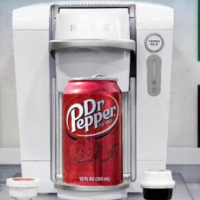
Every week we track the business, tech and investment trends in CPG, retail, restaurants, agriculture, cooking and health, so you don’t have to. Here are some of this week’s top headlines.
Innovation continues to drive the CPG space forward with the help of funding from Big Food acquisitions. Last Week, Kellogg announced its acquisition of “clean label” protein bar RXBAR for $600 million. And now it appears that Siggi’s is looking for a buyer. Dealogic also reports that there were 1,065global food and beverage mergers and acquisitions this year, totaling $78.4 billion.
In retail news, Berlin-based HelloFresh revealed plans to IPO on the Frankfurt Stock Exchange, valuing the company at up to $1.8b in the public markets.
The first “distributed farming” startup, Smallhold, launched the first of its many Minifarms that it plans to install in restaurants across New York City. Agriculture Capital raised $548 million, which it plans to pour into sophisticated, sustainably operated farms growing perennial crops.
And finally, biotech firms have discovered a way to turn methane into protein. The product is already being used in animal feed, the first step toward readying it for human consumption.
Check out our weekly round-up of last week’s top food startup, tech and innovation news below or peruse the full newsletter here.
Our newsletter is the absolute easiest way to stay on top of the emerging sector, so sign up for it today and never miss the latest food tech and innovation news and trends. Already signed up? Share the love with your friends and colleagues!
_______________
1. Here’s What a Chinese Takeout Menu Would Look Like If the Meat Was Grown in Labs – Quartz
Alpha Food Labs explores what a cultured meat future would look like through the lens of a Chinese Restaurant take-out menu.
2. Kellogg Broadens Snack Reach with $600M Purchase of RXBAR – Food Dive
Last week, Kellogg’s announced it was acquiring RxBar, the four year old maker of “clean label” protein bars. RXBAR will continue to operate independently, while leveraging Kellogg’s scale and resources to drive growth.
3. Cultured Meat Will Cost Startups $150M-$370M (and Take At Least 4 More Years) to Bring to Market – Agfunder
We may not see cultured meat on the market until 2021. The technology itself would cost $200m to scale and an additional $85-170m for packaging, marketing and regulatory work.
4. Instead Of Throwing Out This Plastic Wrapper, You Eat It – Fast Company
Indonesia-based startup Evoware converts sustainably farmed seaweed into food-safe, edible packaging. The company plans to use its seaweed packages for instant noodles and coffee, as well as edible wraps for burgers and sandwiches.
5. Startups Raise $206M to Meet Consumer Demand for Protein & Novel Ingredients – Food Navigator
Funding to innovative food startups is increasing with 17 deals raising $206 million in the first half of 2017, representing a 60 percent year-over-year increase. The whole sector raised $4.4 billion across 369 deals in the first half of 2017 with the most active investor being SOSV.
6. The Company Bringing the Farm Right to the Table – Bloomberg
This Wednesday, Brooklyn-based startup Smallhold launched its first Minifarm in Mission Chinese. The company is the first “distributed farming” network and has plans to install its growing units in restaurants across NYC.
7. Sustainable Ag Fund that Likes Oregon Blueberries, Hazelnuts Raises $548M – Washington Business Journal
Agriculture Capital will pour capital into sophisticated, sustainably operated farms growing crops – trees and bushes – that don’t have to be replanted every year as well as “midstream processing assets.”
8. Landfill Gas for Dinner? Scientists to Cook Food From Waste – Bloomberg
California-based Calysta and India-based String Bio are among biotech firms that have discovered ways to turn methane into protein. The product is already being used in animal feed, the first step toward readying it for human consumption.
9. Germany: Blue Apron Competitor HelloFresh Planning to Raise Up to $353M in IPO – TechCrunch
The company is planning to IPO on the Frankfurt Stock Exchange, valuing the company at up to $1.8 billion in the public markets.
10. Owner of Siggi’s Icelandic Yogurt Taps Bank for Sale – CNBC
The Icelandic Milk and Skyr Corporation is in talks with JPMorgan on a possible sale of the company. While Siggi’s value is unclear, the corporation expects to generate sales of $200 million next year and is growing at the rate of 50 percent per year.
11. Slim Jim Goes Upscale with 100% Grass Fed Beef – Food Dive
Slim Jim is launching an upgraded line of meat products that will feature 100% grass-fed beef or 100% premium pork with contemporary flavors and 10 grams of protein per stick.





